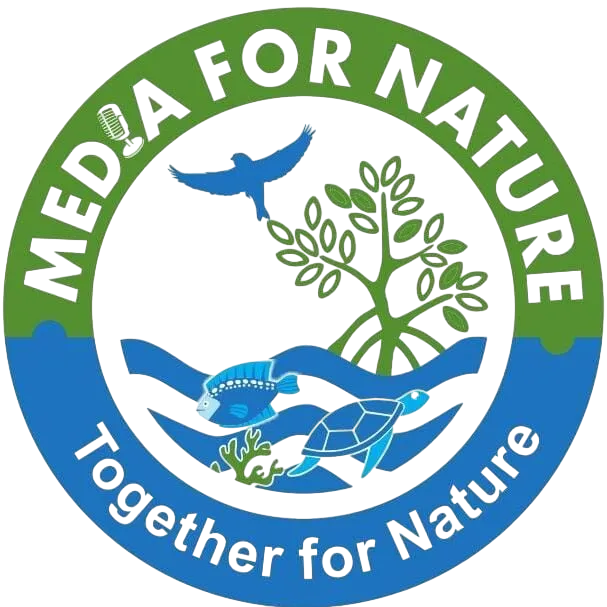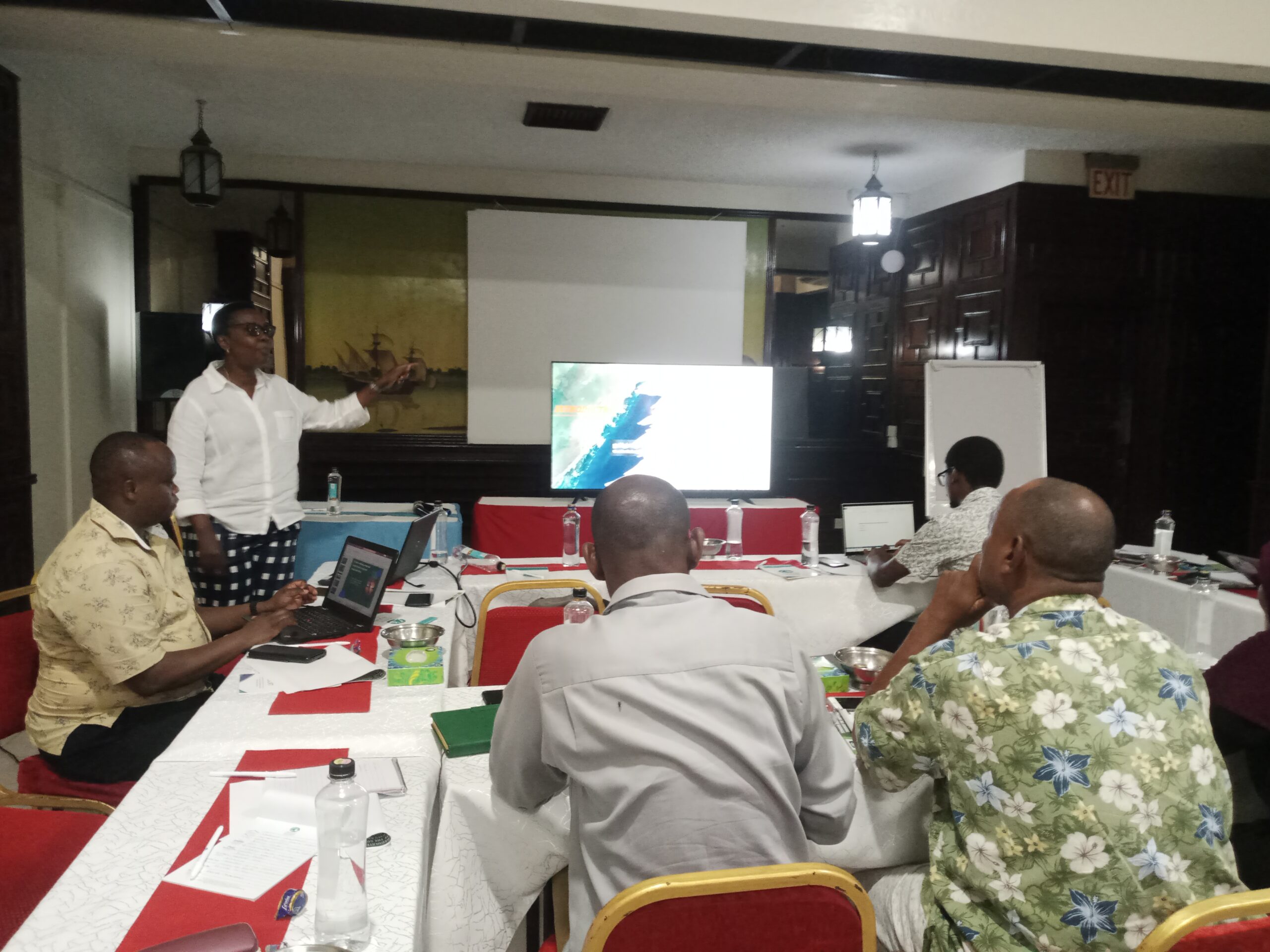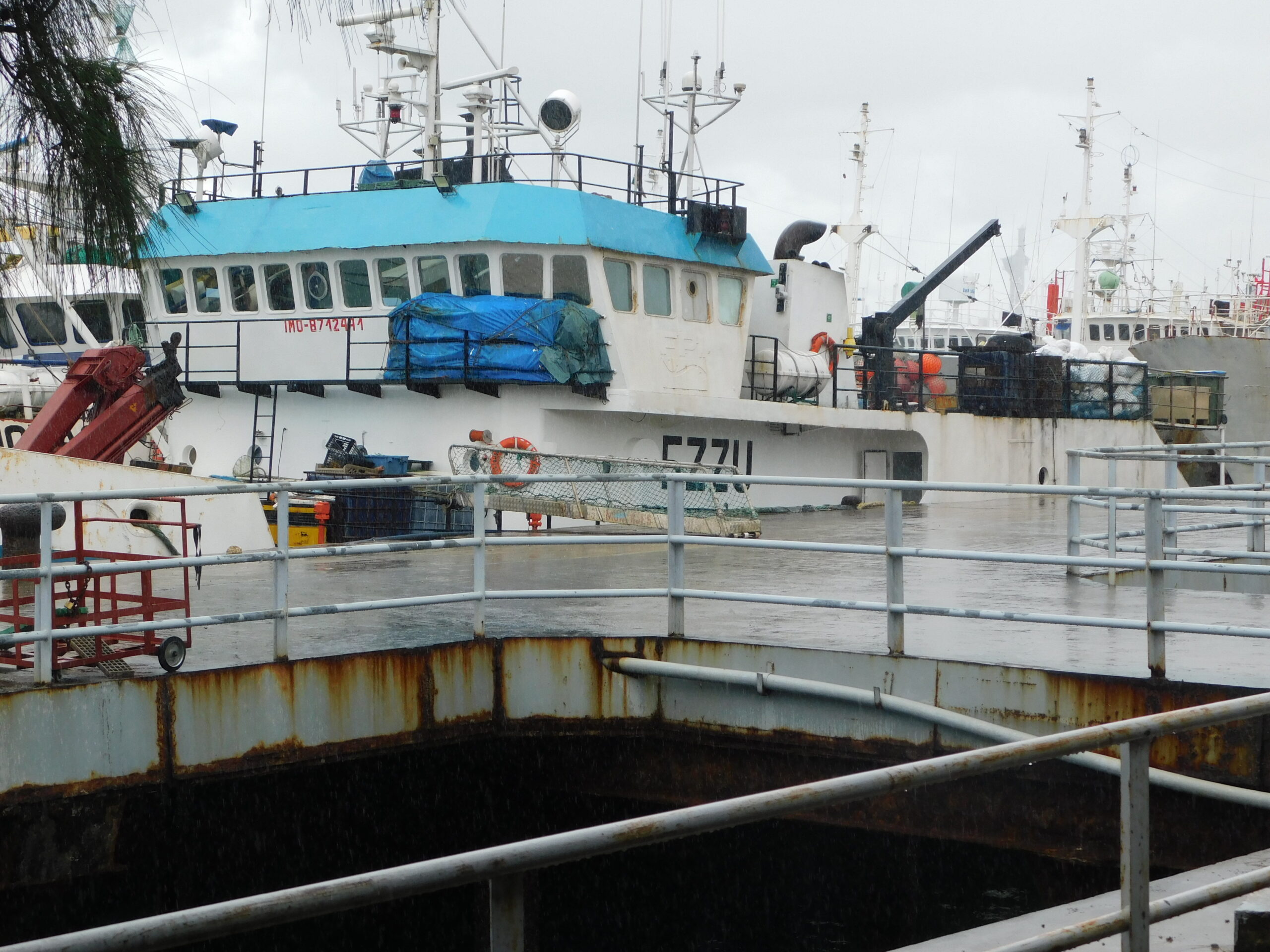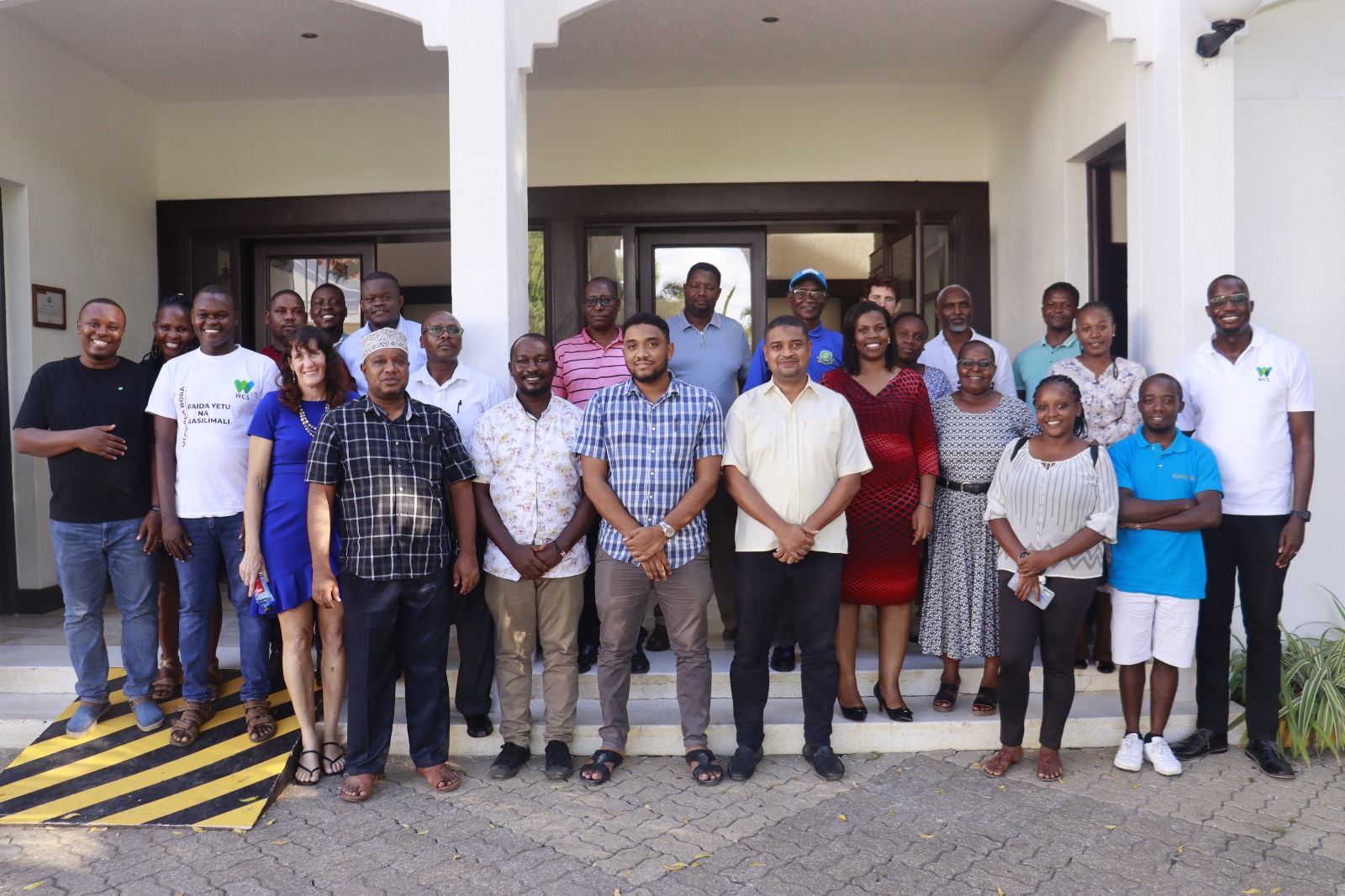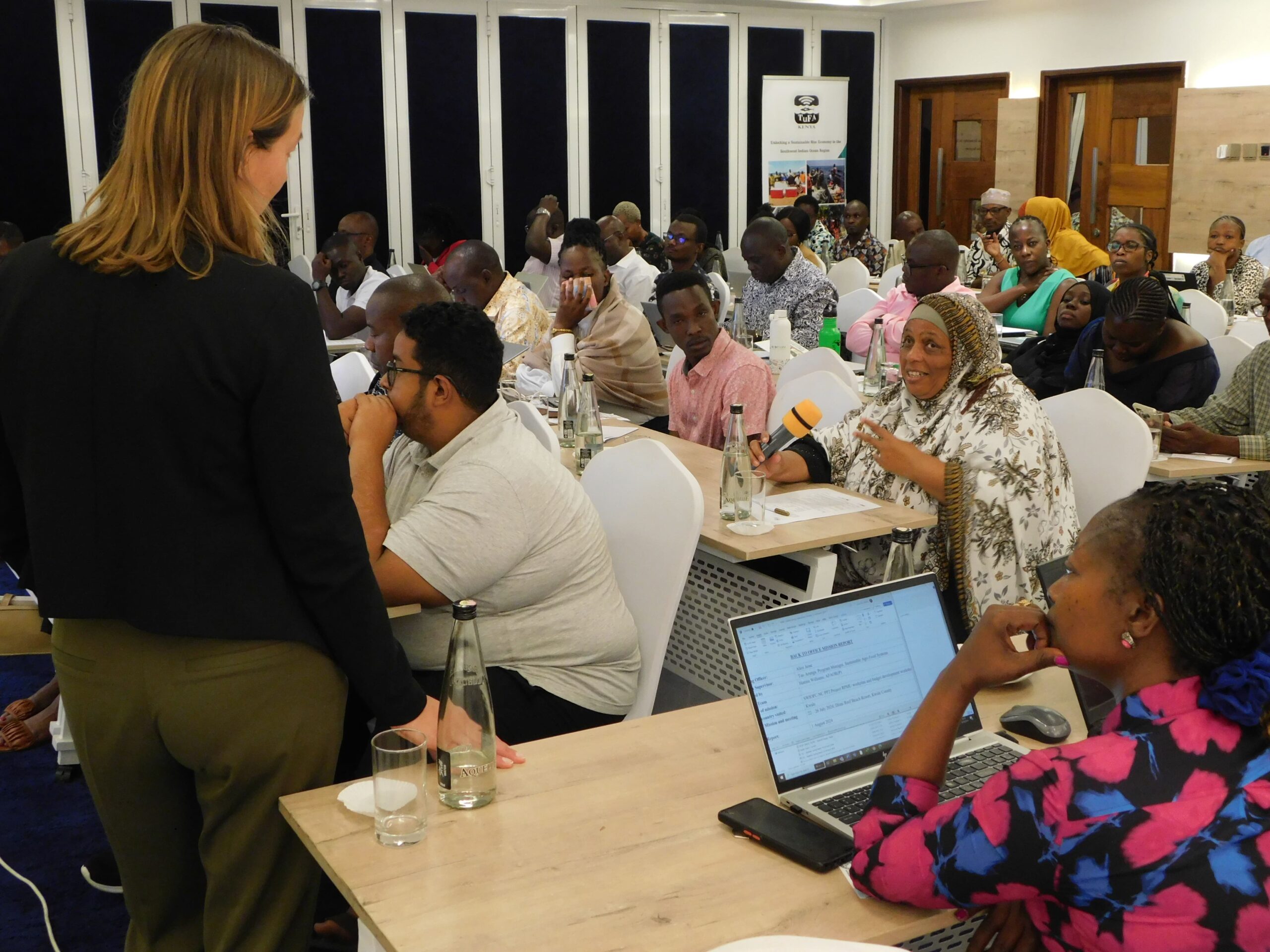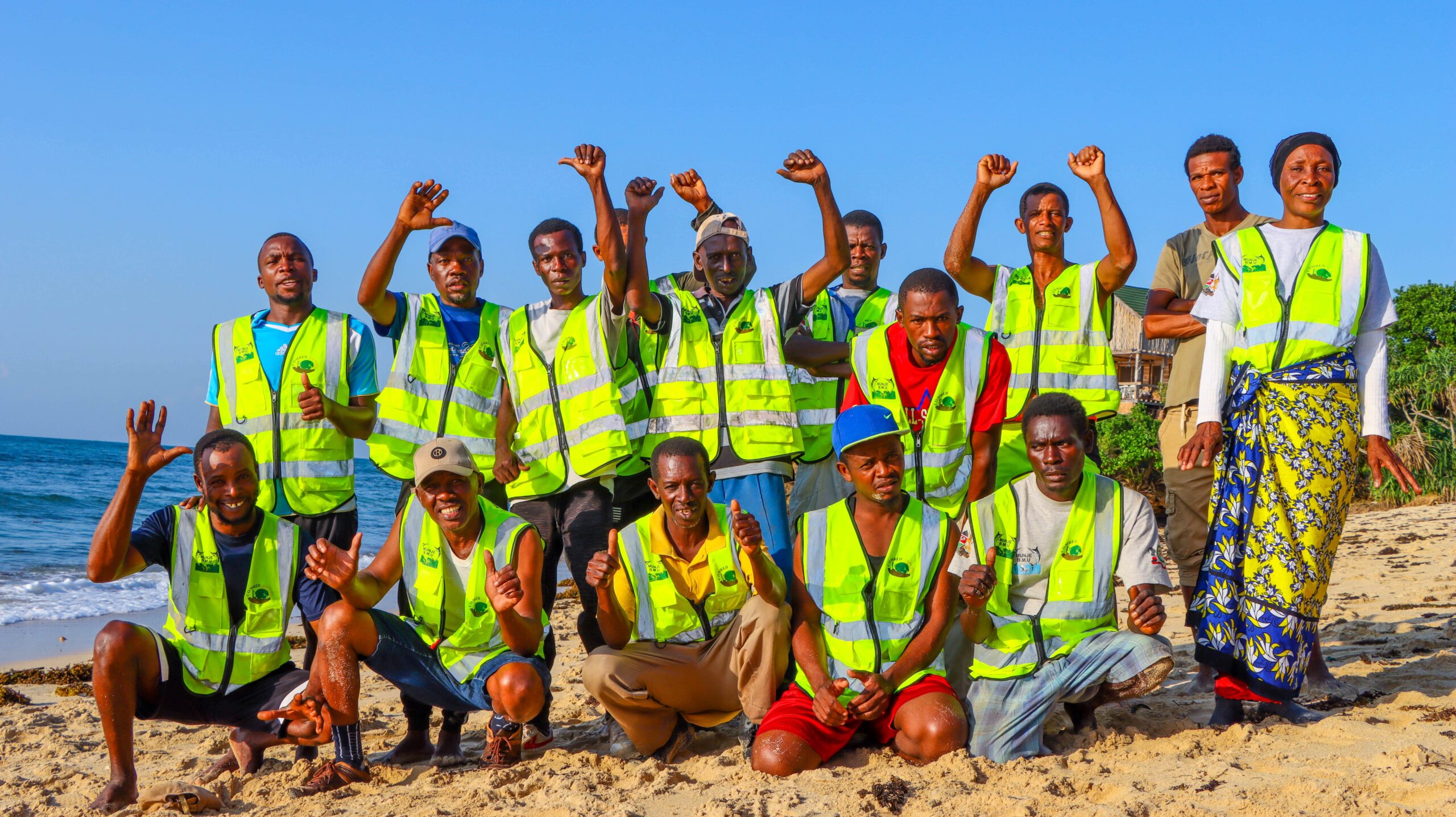ITF Ship Inspector Betty Makena facilitating at the workshop on Labour and fishing work on board fishing vessels. Photo Courtesy | Mazera Ndurya.
Listening to fishers tell their stories of the escapades while at sea fishing in canoes and other small boats can be heart wrenching and one would even think all is rosy for those who get the opportunity to work in commercial fishing vessels.
That too has its own share of problems as fishers and fisheries experts explain in a candid discussion about the welfare of fishers on board commercial fishing vessels.
A recent training workshop on ‘Labour and fishing work on board commercial fishing vessels’ organized by the Tuna Fisheries Alliance of Kenya (TuFAK) brought out glaring gaps that make jobs in foreign fishing vessels elusive and dangerous to Kenyan fishermen.
The objective of the training was to build the capacity of TuFAK members and Civil Society Organizations (CSOs) on the international and national labor standards according to ILO Convention 188 to enable the CSOs to effectively advocate for fair and equitable fisheries access arrangements in the country, and the (South Western Indian Ocean (SWIO) region at large.
The ILO Convention 188 is concerned with employment of crews, and fishing work on board foreign fishing vessels.
A fisherman from Malindi who doubles up as Secretary for the Malindi BMU Salim Ali Mohamed says the laws are inadequate to help turn the fortunes for local fishers.
He said the government should also consider indigenous knowledge that the fishers have because that too is important in addressing safety adding that there are some skills that cannot be obtained from a classroom.
“Fishing has become difficult because of a number of factors that include climate change and that means fishers using rudimentary equipment have little chance of earning decent incomes.
“For this reason, many find themselves being employed to work in fishing vessels therefore it is important to ensure that their welfare is taken seriously by the employers as well as by the government,” he said.
Still, Salim believes that the government has the means to unlock the potential within the blue economy space by providing equipment to the local fishers to fish in the deep sea.
At the same time, he said, by domesticating ILO Convention 188, the government can develop laws and regulations that are friendly because as it is, it doesn’t seem to care about the welfare of the fishers.
“Even as we talk about formulating laws and regulations for the fishers, it is important to note that such laws can only be beneficial if there is a direct involvement of the fishers through public participation.
“It is also important to sensitize the fishers about these laws because I have some friends who work in fishing vessels but they have no information about their rights,” he added.
Mercy Mghanga, a Beach Management Unit leader and Coast Women in Fisheries leader in Mombasa, Kenya’s Coast says the government has crafted laws to govern the fisheries sector and more specifically the Beach Management Unit (BMU) by-laws which are in use.
“On the side of international laws and foreign fishing vessels, our fisher folk still don’t understand them. We have not heard about the laws because the Kenya Fisheries Service which had promised to train fishers on deep-sea fishing with an ambitious target to train 1,000 but I think they have trained about 400 people,” she said.
According to Mercy, the problem is not just about training but the specific course and skills that would earn them employment in big commercial fishing vessels.
“There has been a challenge in the subjects taught because we were told anyone who is to undergo the Standards of Training, Certification and Watch keeping (STCW) course must have attained at least form four education and most of our fishermen don’t have that kind of education background.
“We are appealing to the government to change their system and review the minimum requirements terms because most of the fishers have their own fishing experience and indigenous knowledge. They have no theoretical experience but use their practical skills that they have acquired over time,” she said in an interview with Media for Nature.
She added: “Fishing is not about writing papers or using computers, it is a practical skill and even as we are looking at modern fishing methods, such requirements as education levels should not be used to deny our fishers the opportunity to learn.”
Mercy, a fish trader, singled out organizations such as the WWF, CANCO, TuFAK, ITF and Mission to Seafarers for bringing out the issue of ILO Convention 188 which specifically looks at the welfare of the fishers in foreign fishing vessels.
“Our fishers need these jobs because many ships that dock at Liwatoni in Mombasa to offload fish only have a handful of local people working in those vessels as most of the crew members are foreign nationals. I can attest to this as a trader buying fish from the ships at Liwatoni.”
TuFAK Chairperson Hadley Becha says a lot needs to change in terms of the mindset on the fisher folks because they too have fundamental rights that must be protected by law.
“There must be concerted efforts to get things done the right way from the training to the welfare of the fishers on board foreign fishing vessels.
“In the absence of a guided curriculum in the training of the fishers, the young people who will be entering the industry will face similar challenges and unless we form a strong movement to champion for the right of the fishers it will be difficult to safeguard their welfare,” said Becha.
He said the reason the Beach Management Units (BMUs) cannot be relied on to galvanize support and push for the welfare of the fishers is because there are other competing interests, therefore it’s not an organ that can fight for the interest of the fishermen.
“One fundamental issue that must be addressed is the domestication of the ILO Convention 188 after Kenya ratified it in 2023.
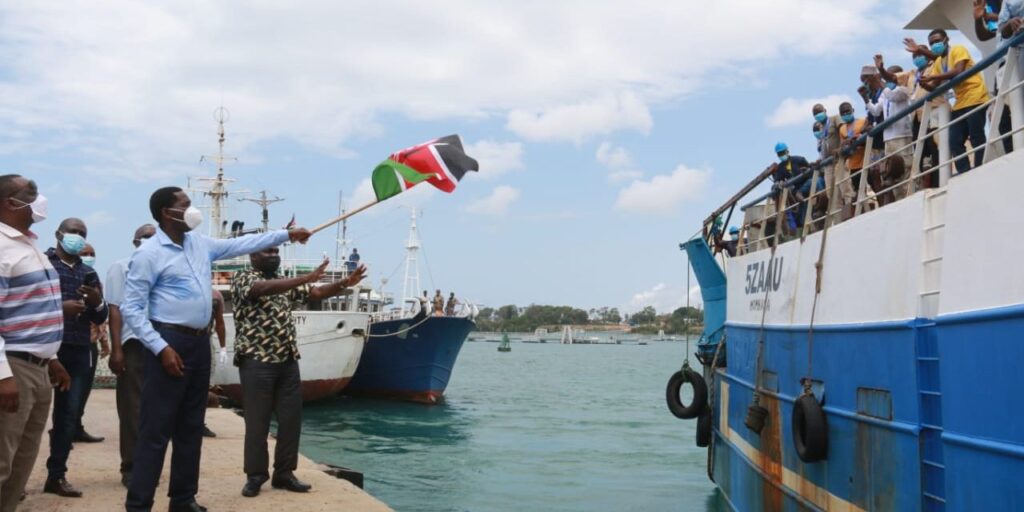
In 2021, Peter Munya,former CS Agriculture, Livestock, Fisheries and Cooperatives, flagged off 2 vessels for training of deep sea Fishers at the Liwatoni Fishing Complex in Mombasa County. Photo courtesy | Ministry of agriculture
According to Betty Makena Mutugi, International Transport Workers Federation (ITF) Ship Inspector at the Port of Mombasa, Kenya has failed to meet some key requirements that would help in fighting for the welfare of the local fishers.
The main task of a ship inspector is to look at the welfare of the crew in ships in terms of the working environment, salaries, health of the crew and even for abandoned ships to ensure that the crew are assisted.
There is a difference between seafarers and fisher folks in relation to what they do and even the laws that govern them. Seafarers work is cargo ships that carry containers, oil and even in cruise liners and over the years many people have come to associate anyone working in ships as a seafarer.
Normal seafarers have their own convention the MLS 2006 while fishers use the ILO Convention 188 which Kenya is a signatory to and ratified it in 2023.
Fisher folks on the other hand are the crew members in fishing vessels and for many years, operated without laws and that’s why employers took advantage to exploit the fishers because the MLS Convention 2006 did not cover fishers.
“When you look at many laws governing the Kenya Maritime Authority (KMA), there is little concern about fishers it’s mainly about merchant ships. The fishers were left in the hands of the fisheries department.
“However, the Fisheries department has a limited number of qualified inspectors , therefore the fishers are more at risk of suffering in the hands of cruel vessels owners,” she said.
The other thing, Makena said, many employers are foreigners and even those Kenyans who own fishing ships exploit local fishermen because the salaries paid to Kenyans is way below that paid to foreign crew members.
“When we tried to find out why Kenyans are being paid little we realized that our fishers lack skills and qualifications. From 2018 when we went for the Blue Economy Conference there have not been any indication of serious attempt at establishing a fishing institute like it is in other countries.
“In Tanzania, for instance they have several colleges that train fishers, one of them being in Bagamoyo. Tanzania has several such colleges and so are other countries like Seychelles and some Kenyans who have undergone training in Tanzania have an edge over those who got training locally,” she said.
With Convention 188 ratified what remains to be done is to enact laws and regulations to operationalize it so that Kenya can be at par with other countries that have taken fishing more serious.
“The issue of sensitization in most countries rests with the government through the ministry of fisheries. From my observation, fishermen don’t know anything about the ILO Convention 188. The government must carry out public participation on the convention, the courses and where the opportunities are found.
“Other countries such as Angola, Tanzania, and Nigeria have laws demanding that foreign vessel coming to fish and have been licensed to fish in those countries, there is a percentage of crew that must be from within. In West African countries specifically and because of the seriousness with which they take the fisheries sector, 70 percent must be locals.
Makena says the only sure way out for the fishers to get their issues addressed is through a trade union or a registered association for fishers.
“BMUs cannot fight for the welfare of the fishers because they are government agents. A union for fishers can be done through COTU. Many other African countries have well established unions or associations agitating for the well-being of fishers.”
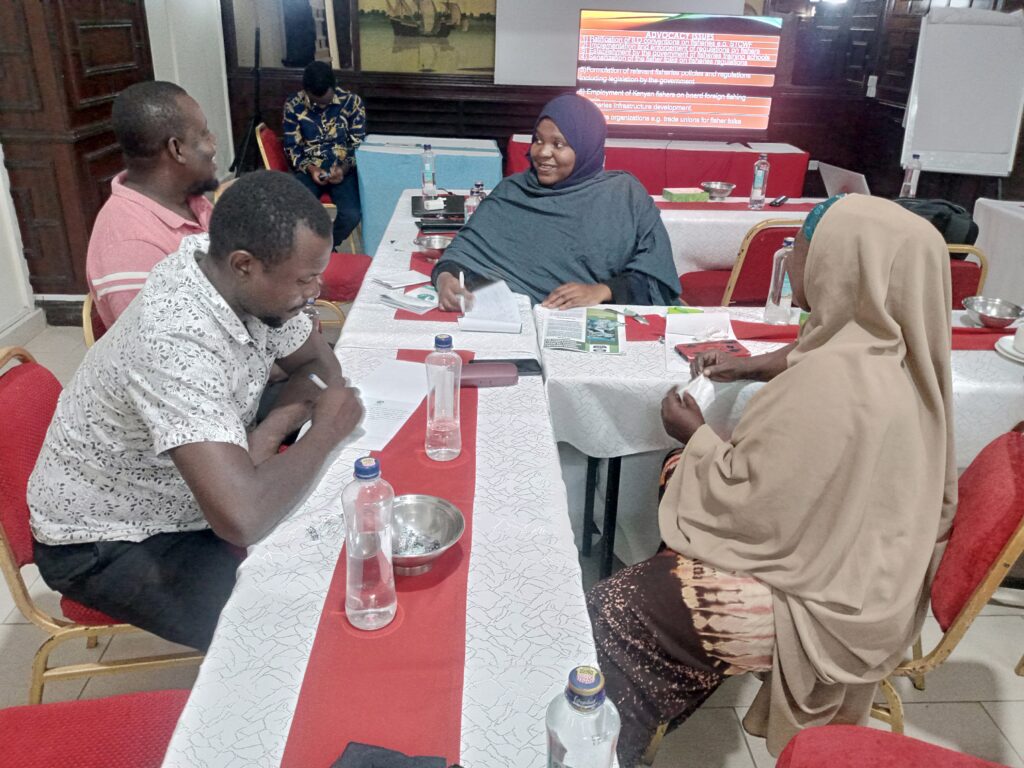
Participants at a workshop on Labor and fishing work on board fishing vessels organized by TuFAK in Mombasa. Photo courtesy | Mazera Ndurya.
About ITF
The ITF works alongside the International Maritime Organization (IMO) to ensure the safety of fishers and the UN’s Food and Agriculture Organisation (FAO), which governs the sustainable management of fisheries.
ITF promotes the IMO International Convention on Standards of Training, Certification and Watchkeeping for Fishing Vessel Personnel, 1995 (STCW-F 1995) and the work on its update
The 1995 STCW-F Convention is a binding treaty that sets certification and minimum training requirements for crews of seagoing fishing vessels with the aim to promote the safety of life at sea and the protection of the marine environment, taking into account the unique nature of the fishing industry.
